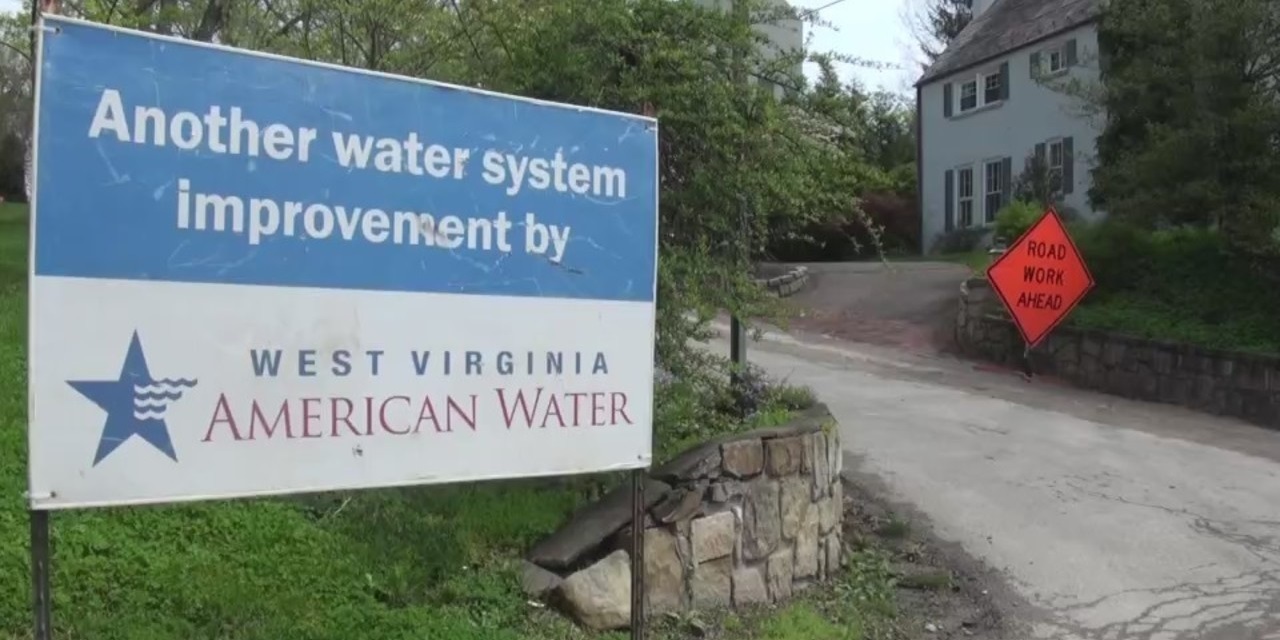CHARLESTON – A Kanawha Circuit Court judge has issued an order approving the definition of the class in a lawsuit related to a 2015 West Virginia-American Water Company leak in Dunbar.
Judge Carrie Webster’s October12 order also approved a notice plan for how class members will be notified of developments in the litigation.
The six-page order comes a few months after the state Supreme Court denied a writ of prohibition involving the case, which sent it back to Webster to handle after the justices found that WVAWC failed to demonstrate that Webster’s previous class certification was erroneous.

diTrapano
In July 2022, Webster issued an order granting the class certification to the case originally filed in 2017. Webster previously had granted class status in the case, but that decision was taken to the state Supreme Court to make sure it followed the guidelines for class certification set by a 2020 state Supreme Court ruling that slightly changed how class certifications are made.
The class will be defined as all WVAWC customers, residents and businesses located within the boundaries of the service area served by the 36-inch water main that broke, but excluding any WVAWC employees or its affiliates, judicial officers and immediate family members and associated court staff assigned to the case, class counsel and attorneys who have made an appearance for the defendants in the case and those who exclude themselves from the class via opt outs.
Under the approved notice plan, class members will receive a mailing and the notice will be published in The Charleston Gazette-Mail and on social media. In addition, digital advertising such as internet advertising and targeted Facebook advertising will be used.
There also will be a website with information for class members as well as a toll-free phone number and a post office box for class members to use.
Webster’s order says a short-form notice and a detailed notice will let class members know they must inform the court by December 29 if they wish to exclude themselves from the class.
Richard Jeffries and Colours Hair Salon are the class representatives in the case. Smith Cochran Hicks will serve as notice administrator.
L. Dante diTrapano, who is one of the lead attorneys representing the plaintiffs, declined further comment on the matter because it’s still pending.
But, diTrapano previously told The West Virginia Record he believes the case is stronger than the other highly publicized Kanawha County case in 2014 against WVAWC because it is not complicated by the competing fault of Freedom Industries and Eastman Chemical.
In this case, according to court filings, initial repair attempts were unsuccessful, and repair efforts created other issues. Regular service was not restored until June 27, 2015. Then, another issue on June 29 created more problems for thousands of the same customers. Regular service was not restored again until July 1.
This interruption of service occurred in what the water company calls the western Kanawha Valley District and affected a total of about 120,000 residents and businesses in Kanawha and Putnam counties.
“The western portion of the Kanawha Valley District is entirely dependent on a single large-diameter 36-inch pre-stressed concrete cylinder pipe (PCCP) which is known to be unreliable and prone to breaks,” the Feb. 4 memorandum states. “Indeed, dating back as far as 1989, this main broke repeatedly, approximately every 3-4 years.”
These incidents occurred shortly after the first settlement proposal was issued related to the 2014 water crisis that affected more than 300,000 WVAWC customers in nine counties. The settlement was for more than $150 million.
The original complaint says the water company had a contract with the customers who lost tap water pressure and service. It says the company also failed to maintain facilities to provide adequate and continuous service, and it says the company violated statutory obligations and was negligent.
The plaintiffs seek compensatory damages for the loss of use of residential tap water, annoyance, inconvenience, incidental expenses, lost profits and other relief. They also seek punitive damages based on what they call the company’s willful, reckless and wanton behavior in refusing to address known issues.
According to court documents, the plaintiffs say they suffered following a “preventable and foreseeable” loss of water service by a leak in Dunbar on June 23, 2015.
Previously, the water company had said it didn’t think a class certification was proper in the case.
“We continue to believe that class action is not an appropriate procedure to deal with any portion of the claims related to the 2015 water transmission main break in Dunbar,” the company previously told The Record. “Regardless of the ultimate resolution of the class action questions, West Virginia American Water will continue to vigorously defend its actions in response to these allegations.”
The plaintiffs are being represented by diTrapano, Stuart Calwell and Alex McLaughlin of Calwell Luce diTrapano in Charleston; Van Bunch of Bonnett Fairbourn Friedman & Balint in Phoenix, Arizona; and Kevin Thompson and David Barney of Thompson Barney in Charleston.
The attorneys listed as representing WVAWC are Thomas J. Hurney Jr., Alexandra Kitts and Samantha D’Anna of Jackson Kelly in Charleston as well as Kent Mayo of Baker Bott in Washington, D.C.
Kanawha Circuit Court case number 17-C-765
